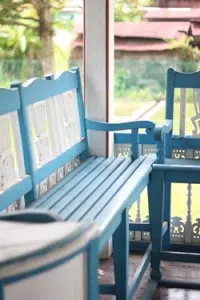At times, the sale of a home may not go as expected for the buyer or the seller. Sometimes, things go wrong and people need legal representation for Minnesota real estate arbitration matters.
Real estate disputes can be very messy.
Contracts, disclosures, purchase agreements, inspections – the list goes on and on. What are your real legal rights? Do you have any? Many people can feel very exasperated when the home they sold or bought turns out to have problems they never realized. Furthermore, many people do not know where to turn for answers. Should you ask your real estate company? Your home insurance? Your warranty? Does anybody really care but you?
Minnesota Real Estate Arbitration
Not all real estate disputes go to arbitration. In fact, the decision to arbitrate is optional – you don’t have to agree to arbitration when you sell your home. However, in my experience as a lawyer, most people just sign the large stack of paperwork in front of them without really thinking about disputes, arbitration, or litigation. After all, you just bought or sold a home – there will be no problems right?
In the case of arbitration, it is likely that you as the buyer and/or seller agreed to binding arbitration in case there are any disputes over the home.
If you did agree to binding arbitration, there are certain rules and procedures that you will have to follow. In particular, the Minnesota Residential Real Property Arbitration Rules will apply to your case. These rules are much like any other court rules that a lawyer would know and follow.
Minnesota Residential Real Property Arbitration Rules
In essence, the arbitration rules outline what the parties agreed to, how they initiate the proceedings, and what rules apply to the arbitration itself.
For instance, to start a case, an agreement to arbitrate must first be made. Again, you likely did this in your purchase agreement for the home but you should check.
Second, the initiation of the arbitration proceedings starts with a “demand”. The upset person must make a demand, in writing, and serve a copy of that demand on the other party. The demand must also be filed, along with supporting documentation with the arbitration association or arbitrator.
Third, the other party may respond with an “answer” and their supporting documentation. This process is very similar to a traditional litigation process in a Minnesota District Court, but it is a bit less formal. The idea is to have a uniform complaint and answer process that has clearly established rules.
Fourth, the parties may then strike a panel of arbitrators. Typically there will only be one arbitrator; however, at times, a party can request a panel of three arbitrators. Eventually, a qualified arbitrator is selected.
Finally, an date for a binding “arbitration hearing” will be set. In my experience, the hearing is typically held at the home (real property) in question so that the arbitrator can review what is in dispute.
Are there any other laws which apply to arbitration?
Many people I speak with are often not aware that the traditional doctrine of caveat emptor does not necessary apply in Minnesota. What is caveat emtor? It is latin, meaning “buyer beware.” It is a common law doctrine which basically states that the buyer pays for what the buyer gets.
In Minnesota, any seller of a home (real property) makes certain warranties that the home will be fit to live in. The legal “warranties” are outlines in Minnesota Statutes 327A.02. Rather than try to explain them, I will outline the important legal text below:
Subdivision 1.Warranties by vendors.
In every sale of a completed dwelling, and in every contract for the sale of a dwelling to be completed, the vendor shall warrant to the vendee that:
(a) during the one-year period from and after the warranty date the dwelling shall be free from defects caused by faulty workmanship and defective materials due to noncompliance with building standards;
(b) during the two-year period from and after the warranty date, the dwelling shall be free from defects caused by faulty installation of plumbing, electrical, heating, and cooling systems due to noncompliance with building standards; and
(c) during the ten-year period from and after the warranty date, the dwelling shall be free from major construction defects due to noncompliance with building standards.
Subd. 2.Warranties to survive passage of title.
The statutory warranties provided in this section shall survive the passing of legal or equitable title in the dwelling to the vendee.
If you have questions about your rights and obligation – contact an experienced lawyer. Joseph M. Flanders has experience handling contested Minnesota real estate arbitration matters.
Free Initial Consultations
Contact the Flanders Law Firm today. The firm offers free consultations to all potential clients. Call 612-424-0398.

